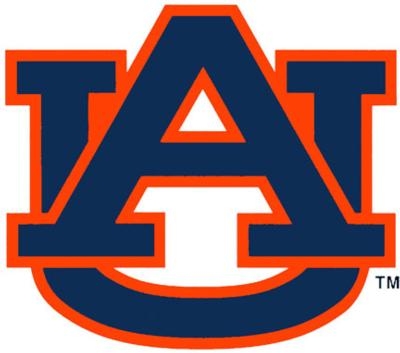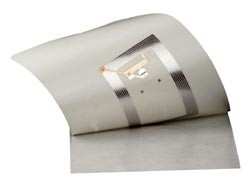In Service of Aerospace Supply Chains
Auburn University, the public land-grant research university in Auburn, Alabama, recently opened a new Aviation and Aerospace ID Lab, the researchers and staff of which will focus on emerging technologies germane to resolving the supply chain shortfalls by which the aviation and aerospace industries are currently afflicted.

The new lab aims to promote the implementation of serialized identification technologies, thereby enabling the aviation and aerospace industries to better track data ranging from the load manifests of spacecraft bound to and from Earth orbit to the number of passengers, type of cargo, presence of safety equipment, and stock of catering carts aboard commercial airline flights.
Auburn Aviation and Aerospace ID Lab managing director Tom Rogers stated: “All of the experiments and tests conducted by the lab will provide concrete, scientific evidence that the technology can cut cost, improve safety, and enhance efficiencies of businesses and government organizations today.” Rogers, a former pilot and a 2012 alumnus of Auburn added: “It is about proving that the technology will deliver a strong return on investment.”
The new lab is a component of Auburn’s Radio Frequency Identification (RFID) Lab, a facility that focuses, also, on retail, supply chain, and manufacturing.
Radio Frequency Identification refers to technologies that use radio waves to identify products and objects. RFID inlays and tags can be scanned via RFID readers within close proximity, or at extended distances of up to several meters. Data pertaining to large quantities of inventory, for example, can be contemporaneously enumerated, characterized, and summarized by RFID systems, which are capable of recording hundreds of parameters in mere seconds.
In addition to studying, refining, and developing future RFID technologies, the new aerospace and aviation lab will conduct research involving a wide variety of sensor technologies — to include Bluetooth and low energy computer vision.
“There are just a lot of applications for the technology in both the commercial aviation and aerospace sectors,” Rogers remarked, noting that the lab’s overarching goal is to guide future advancements through public-private partnership, with a core purpose of identifying uses and applications for market-ready emerging technologies and determining the real-world business values thereof.

“We are seeking to bridge the gap between industry and academia, being focused on the business case and technical implementation of RFID and other emerging sensor technologies,” Rogers set forth.
The Aviation and Aerospace ID Lab will work not only with industry partners and national leaders committed to driving sensor technology adoption, but with Auburn professors and students as well. Through hands-on and in-field work and in cooperation with the best minds in industry and academia, the lab strives to develop innovative solutions by which the aviation and aerospace industries may thrive in the coming decades and beyond.
“The RFID Lab actually employs over ninety-students, and they all work across various projects,” Rogers enthused. “We want to be able to expose them to these major companies in these industries, and we want to allow them the opportunities to have careers at these companies that we work with. So, our students are a vital part of what we do here.”
Currently, the lab is seeking aerospace and aviation firms to support its research through dedicated funding. Sponsorships are also open to Auburn’s RFID Lab and other sensor fusion technology providers. An upcoming opportunity for such collaboration will involve a new AeroID Summit conference that the Aviation and Aerospace ID Lab will present in the autumn of 2023 at Florida’s Kennedy Space Center. The conference will promote private-public collaboration and raise awareness for the lab’s research effort and its goals.
 Bolen Gives Congress a Rare Thumbs-Up
Bolen Gives Congress a Rare Thumbs-Up The SportPlane Resource Guide RETURNS!!!!
The SportPlane Resource Guide RETURNS!!!! Buying Sprees Continue: Textron eAviation Takes On Amazilia Aerospace
Buying Sprees Continue: Textron eAviation Takes On Amazilia Aerospace Hawker 4000 Bizjets Gain Nav System, Data Link STC
Hawker 4000 Bizjets Gain Nav System, Data Link STC Echodyne Gets BVLOS Waiver for AiRanger Aircraft
Echodyne Gets BVLOS Waiver for AiRanger Aircraft




